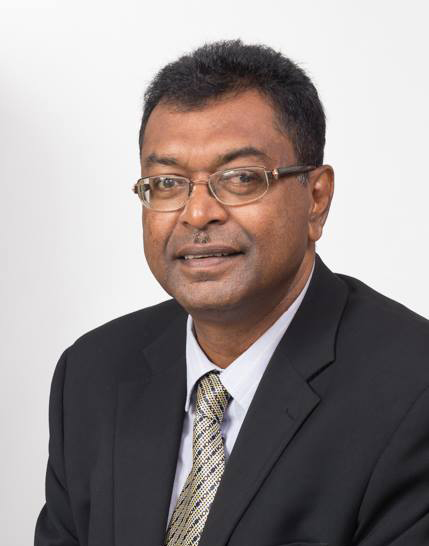The decision by three new political parties to join their Lists of Candidates for the March 2 elections, in the hope of denying the next government an absolute majority in the National Assembly, has surprised many in the political establishment.
“It is something I really want to take a look at because quite frankly, I was totally unaware of this kind of joinder. I had read that law a long, long time ago very comprehensively but it didn’t dawn on me that that could be done. Like so many things about the law, you are surprised to know these things are in there,” APNU+AFC prime ministerial candidate Khemraj Ramjattan told Stabroek News in an invited comment on Saturday.
A New and United Guyana (ANUG), the Liberty and Justice Party (LJP) and The New Movement (TNM) have agreed, based on Section 22 of the Representation of the People Act, to apply for a “joinder” of their lists of candidates so that the votes they secure at the March 2 general and regional elections could be counted collectively and improve their chances of securing parliamentary and regional seats.
The parties will contest the polls separately but in tabulating votes for the allocation of seats in the National Assembly and on the Regional Democratic Councils, their votes will be combined.
“Any party getting 2,000 votes does not get a seat so that’s a waste of those votes but a combination list with 6,000 votes has won a seat and more importantly has prevented either APNU+AFC or the PPP/C from winning that seat,” a source close to the process explained to Stabroek News on Friday.
According to the Act, two or more lists of candidates shall be joined for the distribution of seats (but not for the purpose of voting) if the representative and deputy representative of each list to be so joined gives notice accordingly in writing to the Chief Election Officer not later than the 25th day before election day. It adds that lists so joined are to be referred to collectively as a combination of lists.
In a gazetted order, the Guyana Elections Commission (GECOM) had set Friday, January 17, 2020 as the deadline for an application to embark on a “joinder.” The three parties, at a press conference on Saturday, indicated that they had submitted their request at 6pm on Friday and therefore met the deadline.
Also surprised by this first-time application of a provision drafted in 1963 was former GECOM Chair Dr Steve Surujbally.
“…I never faced the situation. It was always my understanding that any coalition or collaboration must occur prior to Nomination Day. When I held the post, I was never approached about a collaboration after nomination but before the election,” Surujbally said in an invited comment.
This surprise has not, however, stopped some members of the establishment from welcoming the action.
“It is provided for in the regulations so all that is happening is that the regulations are being used. As a commissioner, once all the provisions required by the Chief Election Officer who administers the regulations are met, I am happy to see this development in our democracy,” current GECOM Commissioner Charles Corbin said.
Ramjattan, the leader of the AFC, the smaller member of the governing coalition, also welcomed the move, saying that it shows the “principle of coalition politics” is being embraced outside of the APNU+AFC.
“If that is their strategy in view of the challenges they face, well, I wish them luck in the elections. I wish them luck in their joinder of the list. It’s good that they are seeing the need to build coalitions… I am happy that the principle of coalition politics is being seen as needed by these smaller parties so that they can become a little more effective…that was the need I saw to ensure that the PPP/C was out of government because of all the corruption,” he said.
According to Ramjattan, the acknowledgment by the three parties that it would be difficult for any one party to act as a “third force” in Guyana’s political landscape shows that the AFC must be given greater kudos for what it did in 2006.
In its first outing at the general and regional elections that year, the party was able to contest in all ten Regional Constituen-cies and secured five seats in the National Assembly.
“It is a positive. Coalition politics is something pioneered by the APNU+AFC. The AFC and APNU has already commenced that type of politics. We won government in 2015 because of it and I think we are going to continue in government because of it too,” he emphasised.
Even as he welcomed this new dimension of Guyana’s electoral process, Ramjattan took a swipe at the naysayers who are part of the combination of lists.
“They used to laugh us when we tried to (coalesce). They said that one will be subsumed by the other and independence will be lost but now they see the need for it and I’m certain each of these parties will maintain their independence. They like to talk about how AFC has lost its independence. AFC has never lost its independence; we are not subsumed; we argue our ideas and beliefs and push to be represented as I’m sure each of these parties will if they win one seat,” he said.






